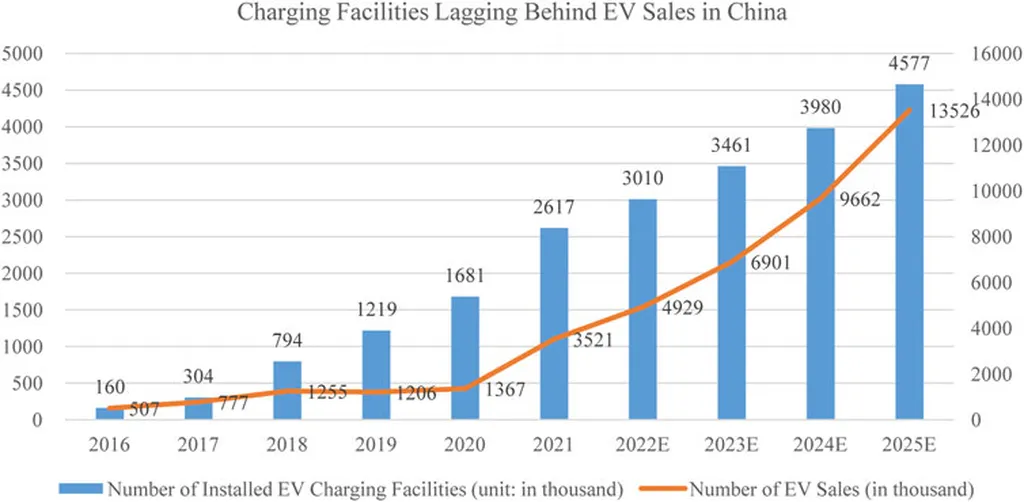In the rapidly evolving landscape of electric vehicles (EVs) and renewable energy, a groundbreaking study offers a new approach to optimizing charging stations that could reshape the energy sector. Led by Qin Yan of the State Key Laboratory of Disaster Prevention & Reduction for Power Grid at Changsha University of Science & Technology, the research introduces a sophisticated pricing and optimization strategy for integrated EV charging stations equipped with photovoltaic (PV) systems and various energy storage solutions.
The study, published in the International Journal of Electrical Power & Energy Systems, addresses a critical challenge in the energy sector: balancing the interests of commercial aggregators and end users while enhancing grid operational efficiency. By developing a multi-objective optimization model, Yan and his team have created a system that considers temperature variations, energy storage capacity, conversion efficiency, and EV charging demand. This holistic approach aims to minimize grid load fluctuations, maximize aggregator profits, and reduce user costs.
At the heart of the strategy is a novel pricing algorithm based on peak-valley differences. This algorithm takes into account the impact of EV penetration and temperature fluctuations, providing a more accurate and responsive pricing model. “The key to our approach is the integration of supercapacitors and lithium batteries,” Yan explains. “This combination allows us to leverage both power and energy densities, making the system more efficient and resilient.”
The research employs Multi-Objective Particle Swarm Optimization (MOPSO) to achieve its goals. This advanced optimization technique helps in balancing the three main objectives: minimizing grid load fluctuations, maximizing aggregator profits, and reducing user costs. Simulation results demonstrate that the proposed model significantly improves grid resilience and enhances economic benefits for both aggregators and users.
The implications of this research are far-reaching. As the demand for EVs continues to grow, so does the need for efficient and sustainable charging infrastructure. By optimizing PV-storage EV charging stations, the energy sector can achieve greater operational efficiency, reduce costs, and enhance grid stability. This study provides valuable insights into the sustainable development and intelligent operation of these charging stations, paving the way for more efficient and resilient power grids.
For commercial aggregators, the proposed strategy offers a pathway to increased profits while meeting the growing demand for EV charging. For end users, it promises reduced costs and a more reliable charging experience. As the energy sector continues to evolve, this research could play a pivotal role in shaping the future of EV charging infrastructure and grid management.
The study, published in the International Journal of Electrical Power & Energy Systems, represents a significant step forward in the integration of renewable energy and EV charging solutions. As the world moves towards a more sustainable energy future, innovations like these will be crucial in achieving a balanced and efficient energy ecosystem.

